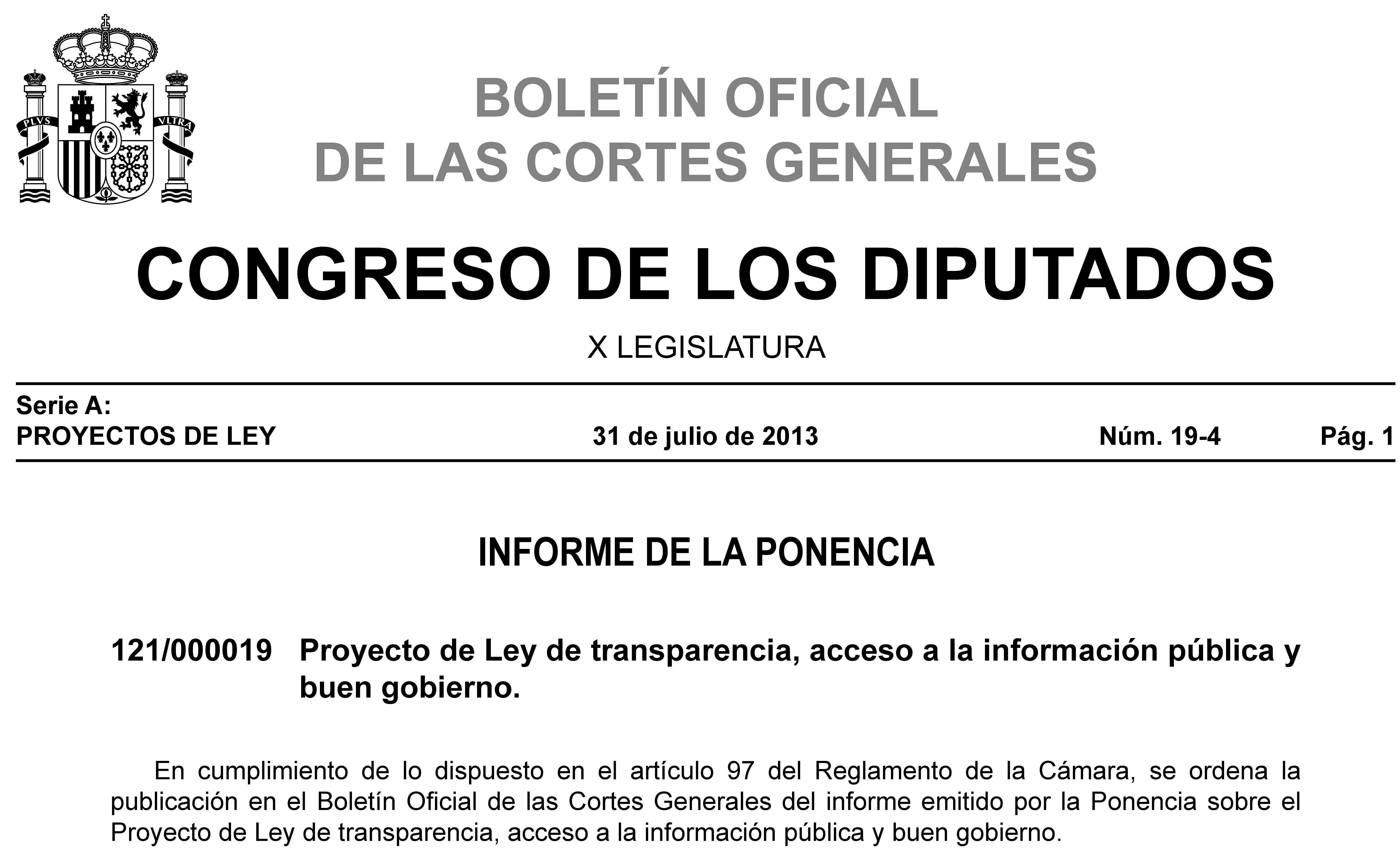 Madrid, 31 July 2013 – The Constitutional Commission of Spain’s Parliament (Congress) today adopted using the voting majority of the ruling Partido Popular and two smaller parties, the draft law on Transparency, Access to Information and Good Governance. This will be passed to the plenary of the parliament in September for subsequent approval by the Senate, most likely to come during the autumn.
Madrid, 31 July 2013 – The Constitutional Commission of Spain’s Parliament (Congress) today adopted using the voting majority of the ruling Partido Popular and two smaller parties, the draft law on Transparency, Access to Information and Good Governance. This will be passed to the plenary of the parliament in September for subsequent approval by the Senate, most likely to come during the autumn.
Three of Spain’s leading pro-transparency organisations, Access Info Europe, Civio, and “Qué hacen los diputados” (What the deputies do”), have for months worked to convince the various parliamentary groups to introduce amendments to strengthen the proposed norm, by making substantive changes and reducing limits to the right. The groups today noted that the law is coming both late and in the midst of a crisis of confidence in Spain’s governing institutions and that what the country needs is a solid access to information law in line with international standards which would bring real transparency.
Not a fundamental right
The Spanish government has made clear that it has no intention of recovnising the right of access to information as a fundamental right. It has supported this argument with decisions of the Constitutional Court dating from over 10 years ago, which in our analysis do not in fact address the precise question of whether Spain’s Constitutional provision protecting freedom of expression includes a right of access to information in the way that international human rights tribunals have found.
This stance puts Spain below international standards, and out of line with many European countries as well as the EU which all recognise a fundamental right of access to information. This right was recently confirmed by the European Court of Human Rights in a sentence adopted 25 June 2013.
Two parliamentary groups (UPyD e Izquierda Plural) called for recognition of a right of access to information in their extensive proposed amendments but these were not adopted, leaving the future transparency law weak when balanced against other norms which do regulate fundamental rights such as data protection.
Limited Scope
The draft adopted by the Constitutional Committee continues to exclude from its scope in what was Article 15 and is not Article 18 artículo 15 significant informacion including notes, internatal reports, memorandums and internal communications, all types of documents which have great bearing on most administrative decisions.
With such information excluded from the law, it will be impossible for Spain to ratify the Council of Europe Convention on Access to Official Documents as that treaty has a much wider definition of information.

